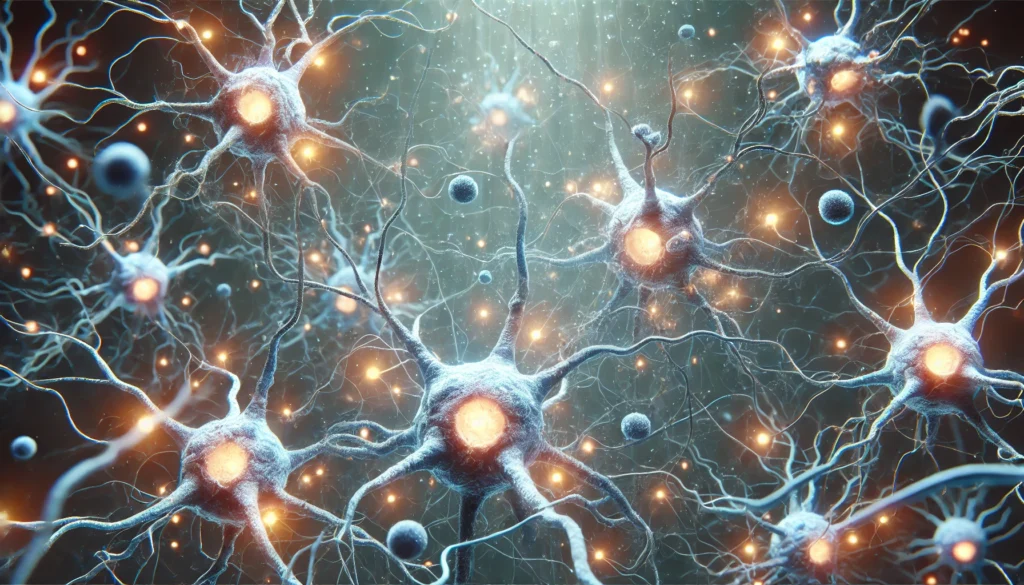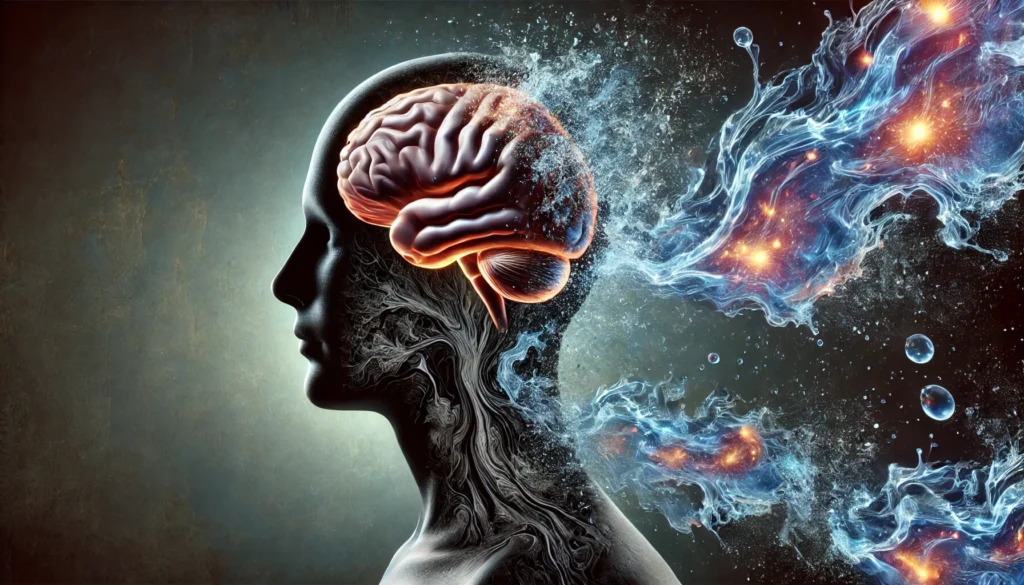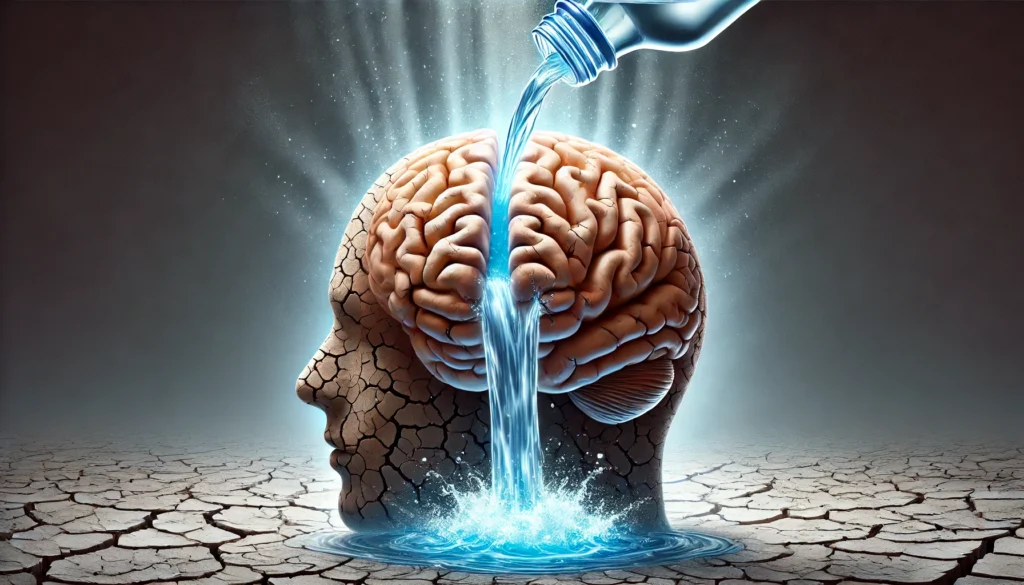The journey of understanding how alcohol affects the brain begins with a closer look at the condition known as brain atrophy. This section unpacks the underlying processes and the specific areas of the brain that are most vulnerable to alcohol’s damaging effects.
You may also like: Understanding the Science Behind Lost Memory
How Alcohol Affects the Brain
Heavy alcohol use is notorious for its detrimental effects on the brain. Research has consistently shown that excessive alcohol consumption leads to brain atrophy—a condition characterized by the loss of neurons and the connections between them. This shrinkage can result in cognitive impairments and memory issues, affecting overall brain function. Alcohol primarily targets the brain’s frontal lobes, which are responsible for higher cognitive functions such as decision-making, problem-solving, and impulse control. Over time, chronic alcohol abuse can significantly reduce the volume of these critical areas, leading to noticeable deficits in cognitive abilities.
Moreover, alcohol impacts the neurotransmitter systems, particularly gamma-aminobutyric acid (GABA) and glutamate, which play essential roles in brain communication and plasticity. These disruptions can further exacerbate cognitive decline and emotional regulation problems. The cerebellum, responsible for coordination and balance, is another target, leading to motor control issues when affected by alcohol. Understanding these mechanisms is crucial for devising strategies to mitigate damage and support recovery.
The Role of Neurotoxicity in Brain Atrophy
The evidence is clear: alcohol does indeed shrink the brain. Studies using magnetic resonance imaging (MRI) have revealed significant reductions in brain volume among heavy drinkers compared to non-drinkers. This shrinkage is not limited to the frontal lobes but can also affect other regions, including the cerebellum, which plays a crucial role in motor control. The mechanism behind this shrinkage involves the neurotoxic effects of alcohol, which can lead to cell death and decreased brain plasticity. Additionally, alcohol can interfere with the body’s absorption of essential nutrients, such as thiamine, which is vital for brain health.
Neurotoxicity from alcohol is compounded by its ability to generate free radicals, leading to oxidative stress. This process damages cellular components, including lipids, proteins, and DNA, accelerating neuronal death. Furthermore, chronic alcohol consumption can induce a pro-inflammatory state in the brain, which disrupts normal neuronal function and exacerbates brain tissue loss. Recognizing these pathways allows for more targeted therapeutic approaches to address and reverse alcohol-related damage.
The Impact of Nutritional Deficiencies
Alcohol consumption can interfere with the absorption and utilization of crucial nutrients necessary for maintaining brain health. Thiamine (Vitamin B1) deficiency is particularly common among heavy drinkers and can lead to Wernicke-Korsakoff syndrome, a severe neurological disorder. This deficiency can further exacerbate cognitive impairments and contribute to brain shrinkage. By understanding the nutritional deficits associated with alcohol abuse, strategies can be developed to replenish these essential nutrients and support brain recovery.
Besides thiamine, deficiencies in other vitamins and minerals, such as Vitamin B12, folate, magnesium, and zinc, can also impair cognitive function. These nutrients are critical for neurotransmitter synthesis and the maintenance of myelin, the protective sheath around neurons. Addressing these deficiencies through dietary changes and supplementation can play a pivotal role in halting or reversing the progression of alcohol-induced brain atrophy.
Reversing the Damage: Is It Possible?
While the effects of alcohol on the brain can be severe, the potential for recovery offers hope. This section explores the brain’s capacity for healing, the role of lifestyle changes, and the use of supplements to support brain health.

Can Brain Shrinkage from Alcohol Be Reversed?
The good news is that the brain possesses a remarkable ability to heal and adapt, a phenomenon known as neuroplasticity. While complete reversal of alcohol-induced brain damage may not always be possible, significant recovery is achievable, especially if intervention occurs early. Abstinence from alcohol is the first and most crucial step toward recovery. Studies have shown that individuals who stop drinking can experience improvements in brain volume and cognitive function over time. The brain’s capacity to regenerate neurons and form new connections can lead to partial reversal of the damage.
Neuroplasticity is bolstered by engaging in activities that stimulate cognitive function, such as learning new skills, which encourages the brain to form new neural connections. Furthermore, abstaining from alcohol allows for the restoration of neurotransmitter balance, reducing the neurotoxic and inflammatory effects of alcohol exposure. Early intervention is vital, as it enhances the brain’s ability to recuperate and regain lost functions more effectively.
The Role of Diet and Supplements in Recovery
In addition to abstinence, certain supplements may support brain recovery. Omega-3 fatty acids, found in fish oil, have anti-inflammatory properties and can enhance neuronal health. B vitamins, particularly thiamine (B1), are essential for brain function and can be depleted in heavy drinkers. Supplementation can help restore these levels and support brain recovery. Antioxidants, such as vitamin E and C, can combat oxidative stress, which is heightened in alcohol-induced brain damage. Additionally, nootropic supplements like ginkgo biloba and ginseng may improve cognitive function and support brain health.
A diet rich in antioxidants, omega-3 fatty acids, and essential vitamins and minerals provides the foundation for a recovery-focused approach. Foods such as leafy greens, nuts, seeds, and fatty fish can support brain health and recovery. Regular intake of these nutrients can enhance neurogenesis, the growth of new neurons, and improve overall brain function. Supplementation should be tailored to individual needs, ideally under the guidance of a healthcare professional, to ensure optimal recovery outcomes.
Lifestyle Modifications for Brain Recovery
Adopting a brain-healthy lifestyle is crucial for reversing alcohol-induced damage. Regular physical exercise has been shown to promote neurogenesis and improve cognitive function. Engaging in mentally stimulating activities, such as puzzles and learning new skills, can enhance brain plasticity. A balanced diet rich in fruits, vegetables, lean proteins, and whole grains provides the essential nutrients needed for brain health. Adequate sleep is also vital, as it allows the brain to repair and regenerate.
Mindfulness practices, such as meditation and yoga, can reduce stress and improve emotional regulation, which is often disrupted by alcohol use. Social engagement and building supportive relationships can also foster a positive environment for recovery, offering emotional support and enhancing cognitive resilience. Consistency in these lifestyle changes can significantly impact the brain’s ability to heal and adapt, paving the way for improved cognitive health and quality of life.
Future Implications and Research
The field of neuroscience is continually evolving, and ongoing research is shedding light on new ways to reverse brain damage from alcohol. Advances in regenerative medicine, such as stem cell therapy, hold promise for repairing damaged brain tissue. Additionally, emerging therapies targeting neuroinflammation and promoting neuroplasticity are being explored.
The Promise of Regenerative Medicine
As our understanding of brain recovery mechanisms deepens, the potential for reversing alcohol-induced brain shrinkage becomes more attainable. Continued research and innovation will pave the way for more effective interventions and treatments. Stem cell therapy, in particular, is being investigated for its ability to replace lost neurons and restore brain function. Early studies suggest that stem cells can integrate into existing neural networks and promote repair, offering a promising avenue for future treatment options.

Emerging Therapies and Technologies
Neurotechnology advancements are enabling researchers to explore new ways to promote brain health and recovery. Techniques such as transcranial magnetic stimulation (TMS) and biofeedback are being studied for their potential to enhance neuroplasticity and cognitive function. These non-invasive methods may offer additional support for individuals recovering from alcohol-induced brain damage, complementing traditional therapeutic approaches.
The Role of Personalized Medicine
Personalized medicine is gaining traction as a means to tailor interventions to individual genetic, environmental, and lifestyle factors. This approach can optimize treatment efficacy and outcomes by considering the unique needs of each person. By incorporating genetic testing, personalized nutrition, and targeted therapies, healthcare providers can offer more precise and effective strategies for reversing alcohol-related brain damage.
Practical Advice for Health Coaches, Journalists, and Biohackers
Health and wellness coaches can empower their clients by providing evidence-based guidance on reducing alcohol consumption and adopting brain-healthy habits. Science journalists can contribute by disseminating accurate information about the latest research and trends in brain health. Biohackers can explore nootropic supplements and lifestyle modifications to optimize brain function and recovery.
Empowering Health Coaches with Knowledge
Health coaches can play a pivotal role in guiding individuals toward healthier choices and supporting recovery from alcohol-related brain damage. By staying informed about the latest research, coaches can offer personalized advice and resources to help clients achieve their wellness goals. Encouraging clients to adopt a holistic approach that includes diet, exercise, and mental stimulation can foster long-term brain health.
The Role of Science Journalists in Public Awareness
Science journalists have the opportunity to educate the public about the impact of alcohol on brain health and the potential for recovery. By covering emerging research and advancements in neuroscience, journalists can raise awareness and promote informed decision-making. Highlighting success stories and evidence-based strategies can inspire individuals to take proactive steps toward brain health.

Biohacking for Brain Optimization
Biohackers, who are often at the forefront of exploring innovative health strategies, can experiment with supplements, technologies, and lifestyle changes to enhance brain recovery. By sharing their experiences and findings, biohackers can contribute to a growing body of knowledge and help others navigate their journey to improved cognitive function. Collaborating with researchers and healthcare professionals can further validate and refine these approaches.
In conclusion, while heavy alcohol use can cause significant brain shrinkage and cognitive impairments, the potential for recovery exists. By embracing a brain-healthy lifestyle, utilizing supplements, and staying informed about emerging research, individuals can take proactive steps toward reversing alcohol-induced brain damage and enhancing overall brain health. The journey to recovery is multifaceted, requiring commitment, knowledge, and support, but the rewards of improved cognitive health and quality of life are well worth the effort.
Further Reading:
How Alcohol Causes Brain Damage
Significant reversibility of alcoholic brain shrinkage within 3 weeks of abstinence
Exercise-driven restoration of the alcohol-damaged brain
Important Note: The information contained in this article is for general informational purposes only, and should not be construed as health or medical advice, nor is it intended to diagnose, prevent, treat, or cure any disease or health condition. Before embarking on any diet, fitness regimen, or program of nutritional supplementation, it is advisable to consult your healthcare professional in order to determine its safety and probable efficacy in terms of your individual state of health.
Regarding Nutritional Supplements Or Other Non-Prescription Health Products: If any nutritional supplements or other non-prescription health products are mentioned in the foregoing article, any claims or statements made about them have not been evaluated by the U.S. Food and Drug Administration, and such nutritional supplements or other health products are not intended to diagnose, treat, cure, or prevent any disease.


